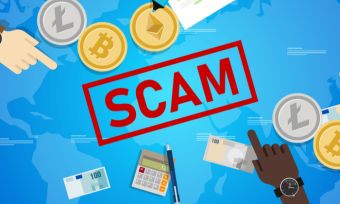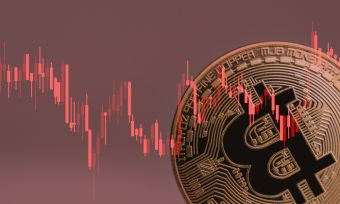Author: Nico Lim
Choosing a cryptocurrency exchange in New Zealand
Before choosing a cryptocurrency exchange, you should figure out what kind of trading you’re interested in, and ask yourself what’s most important to you:
- Ease-of-use
- A wide selection of coins
- Low fees
- Platform authenticity and security
- All of the above
Where to buy Crypto in NZ
The display order does not reflect any ranking or rating by Canstar. The table does not include all providers in the market.
| Provider | Fiat Currencies | Bitcoin | Other Currencies | Est. |
| Easy Crypto | NZD, AUD | Yes | 100+ | 2018 |
| Independent Reserve | NZD, AUD, USA | Yes | 24 | 2013 |
| Kiwi Coin | NZD | Yes | No | 2014 |
| Swyftx | NZD, AUD | Yes | 228 | 2017 |
This information is not an endorsement by Canstar of cryptocurrency or any specific provider. Canstar is providing factual information supplied by providers. Cryptocurrencies are speculative, complex and involve significant risks. Canstar is not providing a recommendation for your individual circumstances or in relation to any particular product or provider.
Learn more about cryptocurrency here
What to think about when choosing a crypto exchange
1. User interface & ease-of-use
Buying and selling crypto doesn’t need to be complicated. While having all the advanced trading features can be appealing to experienced traders doing high volume/futures/leverage trading, most crypto users are just after a simple way to buy and sell crypto that is safe and easy to understand. If this is you, you may want to look for an exchange that:
- Is designed for simplicity and emphasises a user-friendly experience
- Offers a clean and no-nonsense display of your assets and the current markets
- Provides a free, personal wallet (kept on the exchange) upon sign up (note that custodial wallets, on an exchange, are great for beginners, but tend to pose more risk than non-custodial wallets.)
- Offers educational guides on the basics of crypto
- Offers useful features such as recurring buys/dollar-cost-averaging, price notifications or even practice modes (trading without real currency)
- Has a desktop/mobile app that is easy to use
- Isn’t convoluted with every advanced trading feature out there (which can make buying crypto WAY harder than it needs to be)
→Related article: How to buy Cryptocurrency in New Zealand
2. Platform Security
Platform security is paramount. If an exchange is insecure, you could potentially lose all your assets. If you want to avoid this happening, it may be best to prioritise exchanges that offer:
- 2-factor verification (2FA) – especially for withdrawals
- The vast majority of customer funds stored offline in cold storage
- A web address that starts with HTTPS (NOT HTTP)
- A KYC (know your customer) policy, which ensures the integrity of the platform
- Biometric face recognition, which greatly improves your account security
- Sophisticated and regularly updated multi-layered security
- Regular security reviews and criminal background checks of employees
- If you have a large holding of crypto, we don’t recommend storing it all on an exchange. Consider using a cold, hardware wallet for added security
3. Company authenticity & customer-support
While this is one that people too easily gloss over, the authenticity and transparency of the company and the people who run the cryptocurrency exchange are very important. If you’re new to crypto, there’s a good chance you may need to contact your exchange at some point, so it’s really worth looking into an exchange that:
- Offers responsive and New Zealand-based customer support
- Is passionate about crypto education and getting newcomers crypto-savvy
- Openly reveals its owners, company location and the members of its team
- Has members who are personally involved with local crypto events and active in crypto forums and Facebook groups
- Has an upfront and transparent fee schedule (be aware that most exchanges claim this even if it isn’t true)
→Related article: Biggest Crypto Mistakes to Avoid as a Beginner
4. Fees & charges (especially the hidden ones!)
The fees that a crypto exchange charges matter! And they vary wildly, as many exchanges stow hidden fees away where they aren’t so easy to notice.
Most exchanges charge fees for crypto trades, so it’s a good idea to review and compare a few exchanges to see who provides the most competitive fees. But be vigilant! Some exchanges may advertise that they charge no fees, only to take their cut from hidden currency conversion fees, their spreads, or listing their coins at prices that are higher than other exchanges.
This is no different to the currency exchange stalls at airports that offer ‘fee-free’ conversions. Only somehow you end up with a lot less of the currency than you thought.
Looking for an exchange that ‘locks in’ your trades (also called guaranteed pricing) guarantees that you get the price you see at the time of transaction. Even if the trade doesn’t settle immediately.
Importantly, make sure you can trade directly in NZD. While this is available on local exchanges, such as those in the above table, not all international exchanges accept NZD. That means you may have to convert your NZD to BTC or USD before trading. This process may also come with its own sneaky hidden fees or exchange rate mark-ups.
5. Selection of coins
As you know, Bitcoin is no longer the only crypto on the market. Coins like Ethereum, Litecoin and Ripple are becoming increasingly part of the mainstream vocabulary. And there are thousands of other altcoins to choose from.
While many altcoins are highly risky and volatile investments, the crypto market is booming with innovative new coins, some of which may do well in the future. If you want access to more than just Bitcoin and Ethereum, it may be worth looking at exchanges with a wide selection of coins.
6. Local or international exchange
Generally speaking, it’s better to choose an exchange from the country you are in. This makes things easier with:
- Any legal and regulatory changes
- Any necessary taxes
- Having quality customer-support
- Buying crypto direct with NZD
- Added protection, as NZ-based crypto exchanges must be registered on the Financial Services Provider Register (FSPR) and adhere to local regulations
If you do want to use an international exchange for whatever reason, this is possible, too, just be mindful of some of the drawbacks they can have if you’re living in New Zealand.
7. Spreads & liquidity
Have you taken spreads into account? Spreads are another way you can be charged fees that are not stated upfront, so get savvy about them before you sign up.
Basically, a spread is the difference between the quoted buy and sell price on an exchange. Having tighter spreads (a lower difference between the quoted prices) is beneficial in a number of ways and will minimise your fees and losses when trading cryptocurrency. Not only do spreads affect every trade you make, but they are often not stated upfront and may leave you confused and out-of-pocket.
Liquidity, on the other hand, makes it possible to complete transactions faster, more easily and without so much price volatility. The higher the trading volume is, the more liquid an exchange or any individual asset is. It is probably a good idea to prioritise exchanges that offer ‘locked-in trades’ or ‘guaranteed pricing’. Depending on the type of trading you’re looking to do, liquidity can be an important factor.
8. Instant trading, verification & method of purchase
Having access to instant withdrawals and deposits is desirable for most traders. Additionally, the method of purchasing cryptocurrency can vary between platforms. Some exchanges offer deposits by bank transfer, PayID, PayPal, POLi, or credit and debit cards. Whatever you’re looking for, choosing an exchange that offers free, instant NZD deposits is a good idea. Otherwise, using an exchange that only accepts foreign currency (such as USD) or other cryptocurrency runs the risk of added fees.
Furthermore, it usually helps to choose an exchange with fast/instant account verification, especially if you’re eager to get trading. You’ll usually need to provide an official ID document and do a biometric face check for instant verification to be possible.
Deciding on a cryptocurrency exchange
After doing your research, it’s time to weigh up your options and decide what’s most important to you. Remember, don’t be afraid to contact exchanges’ customer support, seek out user testimonials, or sign up and try out a few exchanges before committing to one. Choosing the right exchange can make a big difference to your crypto experience, and it’s worth shopping around before you dive right in.

About the reviewer of this page
This content was reviewed by Content Producer Andrew Broadley as part of our fact-checking process. Andrew is an experienced writer with a wide range of industry experience. Starting out, he cut his teeth working as a writer for print and online magazines, and he has worked in both journalism and editorial roles. His content has covered lifestyle and culture, marketing and, more recently, finance for Canstar.
Enjoy reading this article?
You can like us on Facebook and get social, or sign up to receive more news like this straight to your inbox.
By subscribing you agree to the Canstar Privacy Policy




Share this article